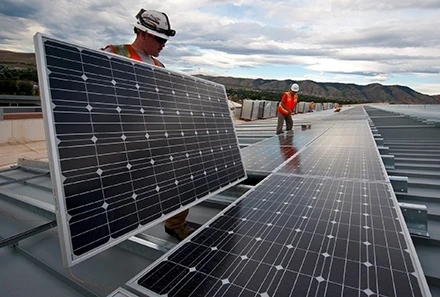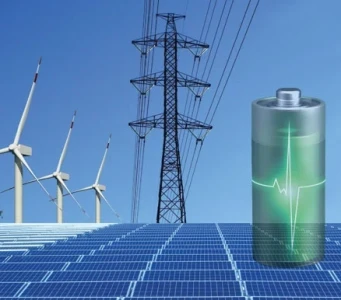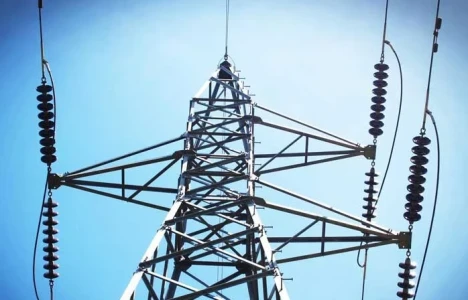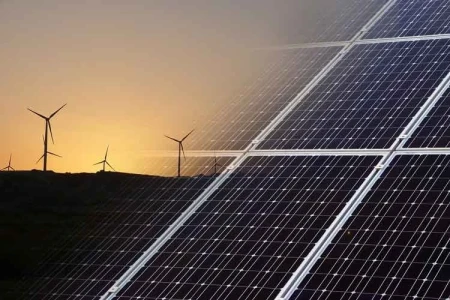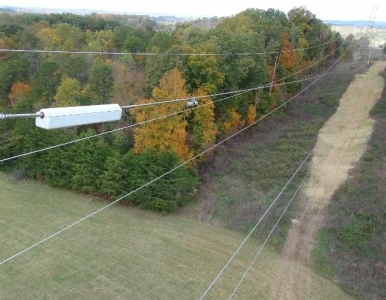Whitehouse Advocates for Carbon Pricing to Combat Climate Change

As the world grapples with the accelerating impacts of climate change, U.S. policymakers are increasingly recognizing the need for bold and effective strategies to reduce carbon emissions. One of the most outspoken advocates for such action is Senator Sheldon Whitehouse from Rhode Island, who has been pushing for a national price on carbon pollution as a means to drive down greenhouse gas emissions and incentivize the transition to cleaner energy sources.
Whitehouse's calls for carbon pricing were made clear during his keynote address at the Renewable Energy World conference, where he urged policymakers to take decisive action to put a price on carbon. With the global climate crisis growing ever more urgent, Whitehouse’s remarks come at a time when the U.S. is under increasing pressure to meet its climate goals under the Paris Agreement.
Why Carbon Pricing?
Carbon pricing is a market-driven approach to reducing carbon emissions by placing a financial cost on emitting carbon dioxide (CO2) into the atmosphere. This can take the form of a carbon tax, where companies or individuals pay a fee based on the amount of CO2 they emit, or a cap-and-trade system, where a cap is set on total emissions, and companies can buy and sell allowances to emit a certain amount.
Whitehouse argues that carbon pricing is one of the most efficient and effective ways to drive down emissions. By assigning a cost to pollution, it creates financial incentives for businesses to reduce their carbon footprint, invest in clean technologies, and shift towards renewable energy. The idea is simple: If emitting carbon has a financial cost, companies and consumers will be motivated to choose cleaner alternatives.
“By pricing carbon pollution, we can make the true costs of burning fossil fuels clearer and level the playing field for renewable energy,” Whitehouse said in his speech. “The market is a powerful tool, and if we can harness it to account for the external costs of carbon emissions, we will accelerate the transition to a clean energy future.”
Economic Benefits of Carbon Pricing
Aside from its environmental impact, carbon pricing can also bring significant economic benefits. By putting a price on carbon, the government can raise revenue that can be reinvested into climate solutions, such as funding renewable energy projects, energy efficiency programs, or green infrastructure development. Whitehouse highlighted how carbon pricing could help stimulate the economy while achieving crucial emissions reductions.
A well-structured carbon pricing system could encourage innovation, boost clean technology industries, and create new job opportunities in sectors like renewable energy, electric vehicles, and energy storage. As the renewable energy sector continues to expand, policies that support decarbonization efforts will ensure that the U.S. remains competitive in a rapidly evolving global market.
Whitehouse also pointed to research showing that a carbon tax could lead to a net increase in economic growth, citing reports from the Congressional Budget Office (CBO) and other nonpartisan organizations. In fact, studies suggest that a national carbon tax could raise billions of dollars annually, which could be used to offset other taxes or provide rebates to consumers, making the policy economically palatable to both industry and the public.
Political Roadblocks and Resistance
Despite the growing consensus on the need to act on climate change, carbon pricing faces significant political opposition. Fossil fuel industries, which are among the biggest polluters, argue that carbon taxes or cap-and-trade systems could lead to higher costs for businesses and consumers. This has led to resistance from lawmakers who rely on the support of these industries or fear the economic impact of carbon pricing.
However, Whitehouse remains steadfast in his belief that the benefits far outweigh the challenges. He acknowledges that passing carbon pricing legislation will require overcoming considerable political hurdles, but he believes that the urgency of the climate crisis makes it imperative to take bold action. His calls for action come as the U.S. faces increasing pressure from the international community to reduce its emissions and accelerate the transition to a clean energy economy.
“Carbon pricing isn’t a silver bullet, but it is an essential part of the puzzle,” Whitehouse said. “It’s a way to move us away from fossil fuels, create a level playing field for clean energy, and ensure we leave a livable planet for future generations.”
The Path Forward
While carbon pricing has yet to become a national reality, several U.S. states have already implemented their own forms of carbon pricing, and international efforts are gaining momentum. California’s cap-and-trade system and Washington State’s carbon tax are among the models that could inspire broader adoption of carbon pricing nationwide. Moreover, with the Biden administration's commitment to climate action and its push for clean energy investments, there is renewed hope that carbon pricing could become a part of the federal policy landscape in the near future.
In conclusion, Senator Sheldon Whitehouse’s push for carbon pricing reflects a growing recognition that the fight against climate change requires a comprehensive and market-driven approach. By putting a price on carbon pollution, the U.S. can reduce emissions, accelerate the transition to clean energy, and stimulate economic growth. While significant political challenges remain, the urgency of the climate crisis makes it imperative that lawmakers continue to pursue effective solutions, with carbon pricing playing a critical role in that effort.


